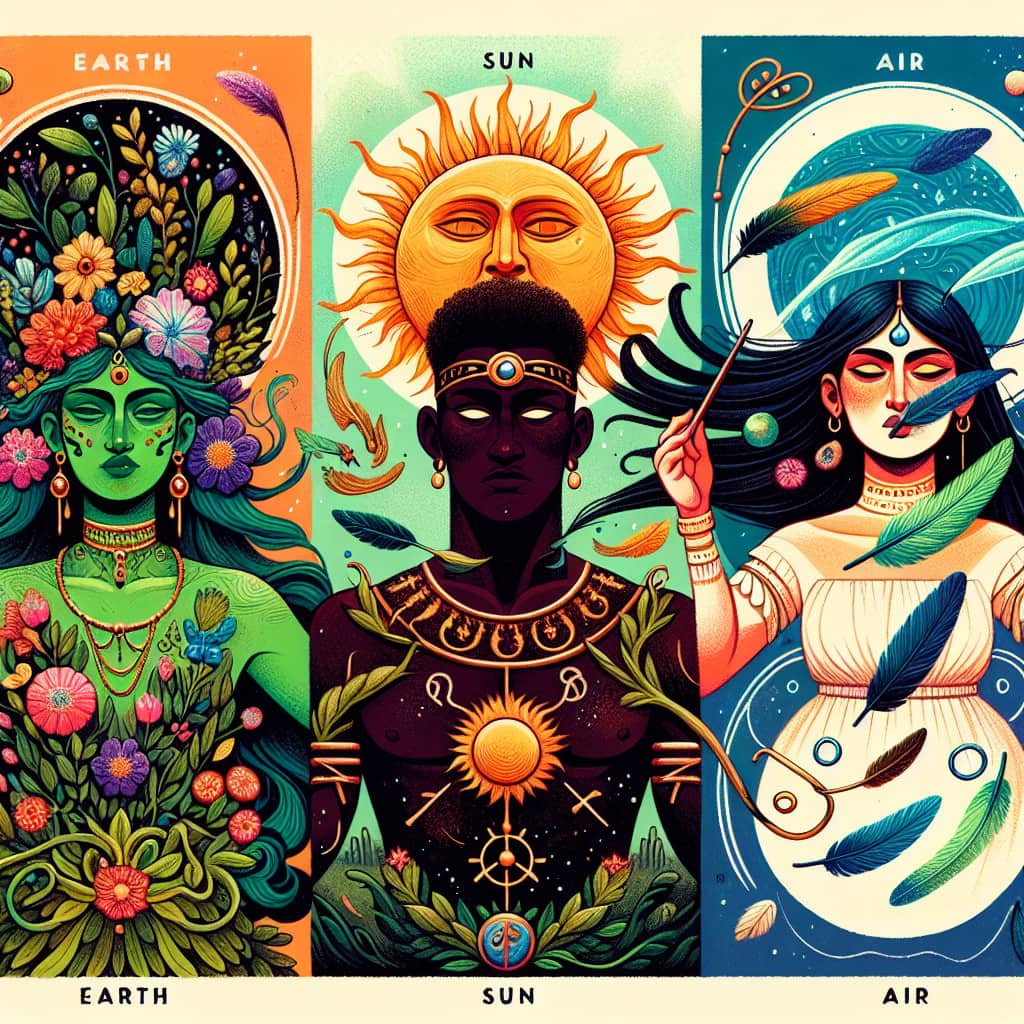The pagan gods have been an object of fascination for centuries, with their mysterious and powerful presence inspiring awe, reverence, and even fear. The pantheons of these gods have been a source of academic study, spiritual exploration, and artistic inspiration. From the Norse gods of Scandinavia to the Greco-Roman gods of antiquity, these ancient religions have shaped the culture and mythology of many societies. In this article, we will explore the history and significance of the pagan gods, and discover who these mysterious figures truly are.
Paganism is an umbrella term for a wide variety of beliefs and practices, which are often characterized by a reverence for nature and the Earth. The term “pagan” originally referred to people who lived in rural areas and practiced traditional religions, such as the Druids, Celts, and Norse. Today, the term is often used to refer to those who practice modern forms of paganism, such as Wicca, Druidry, and Asatru.
What Are Pagan Gods?
Pagan gods are a varied group, as there are many different pantheons of gods and goddesses in different traditions. Generally, they are seen as powerful spiritual forces or entities, who often personify natural forces, such as the sun, moon, and stars. These gods and goddesses are often associated with aspects of nature, such as fertility, love, and war.
What Is the Difference Between Pagan Gods and Monotheistic Gods?
The primary difference between pagan gods and monotheistic gods is that pagan gods are seen as multiple gods, while monotheistic gods are seen as one god. Monotheistic religions, such as Christianity, Judaism, and Islam, believe in one God who is all-powerful and the source of all existence.
Pagan gods, on the other hand, are seen as multiple deities who are often associated with different aspects of nature, such as fertility, love, and war. These gods and goddesses are often seen as powerful spiritual forces, but they are not necessarily seen as all-powerful.
What Are Some Examples of Pagan Gods?
Some of the most well-known examples of pagan gods are the Greek gods and goddesses, such as Zeus, Apollo, and Athena. There are also Celtic gods and goddesses, such as Lug, Brigid, and Cernunnos. The Norse pantheon includes Odin, Thor, and Freya. In some traditions, such as Wicca and Druidry, there is a focus on goddesses, such as the Triple Goddess, which is composed of the Maiden, Mother, and Crone.
Are Pagan Gods Still Worshiped?
Pagan gods are still worshiped by many people around the world. Some people practice modern forms of paganism, such as Wicca and Druidry, while others practice more traditional forms of paganism, such as the Norse and Celtic pantheons.
What Are Some Common Practices in Paganism?
Common practices in paganism include rituals, such as seasonal celebrations, offerings to the gods, and spells. Pagans also practice divination, such as tarot cards and astrology. They also often practice meditation and trance work, as well as working with crystals and herbs.
What Is the Relationship Between Paganism and Nature?
Paganism has a strong connection to nature, and pagans often view the natural world as sacred and interconnected. Nature is seen as a source of power and is often used in rituals and ceremonies. Many pagans also believe that there is a spiritual energy in nature, which can be accessed and worked with.
What Is the Difference Between Paganism and Witchcraft?
Paganism is an umbrella term for a variety of different beliefs and practices, while witchcraft is a specific practice within paganism. Witchcraft is a practice of working with natural energies and forces to bring about desired changes. It is often used for healing and protection, as well as for manifesting one’s goals and desires.
What Is the Difference Between Paganism and Occultism?
Paganism is an umbrella term for a variety of different beliefs and practices, while occultism is a specific practice within paganism. Occultism is a practice of working with hidden knowledge and forces, such as spirits and magical energies. It is often used for divination and connecting with the divine.
Conclusion
Pagan gods are an integral part of paganism, and they are seen as powerful spiritual forces or entities. They are often associated with different aspects of nature and can be worshiped in a variety of ways. Paganism also has a strong connection to nature and many pagans practice rituals and ceremonies to honor the gods and goddesses. Witchcraft and occultism are specific practices within paganism, and they are often used for healing, protection, and manifesting goals and desires.
The Pagan gods and goddesses have been an important part of many cultures throughout history. They have been seen as powerful forces, capable of both good and evil, and have been worshiped for centuries. While their stories and beliefs may have changed over time, the respect and reverence for these powerful deities is still alive and well. By understanding the history and mythology of the Pagan gods, we can gain insight into the diverse and fascinating beliefs of our ancestors. The Pagan gods are a reminder of the importance of understanding our past, and of the power of mythology and spirituality to shape our lives.





